The best content creators help support business growth and not just grow social media followings. It's about solving the problems that can both help your target audience and drive growth for a business.
Although I am and will forever be a student who's new at something in my career, I'm sharing what I've learned in my nontraditional education going from being a design student to social media manager to heading content at VEED.
Here's what I'm covering:
- What do content creators do?
- 15 short lessons on how to become a successful content creator
- Types of content creators can make
- How to successfully create different types of content
- The best tools for content creators
- The best (free and paid) resources to learn about content
- Frequently asked questions about content creation jobs
Before we dive into the lessons, lets discuss what exactly does a creator do at different points in their career?
What do content creators do? 🧐
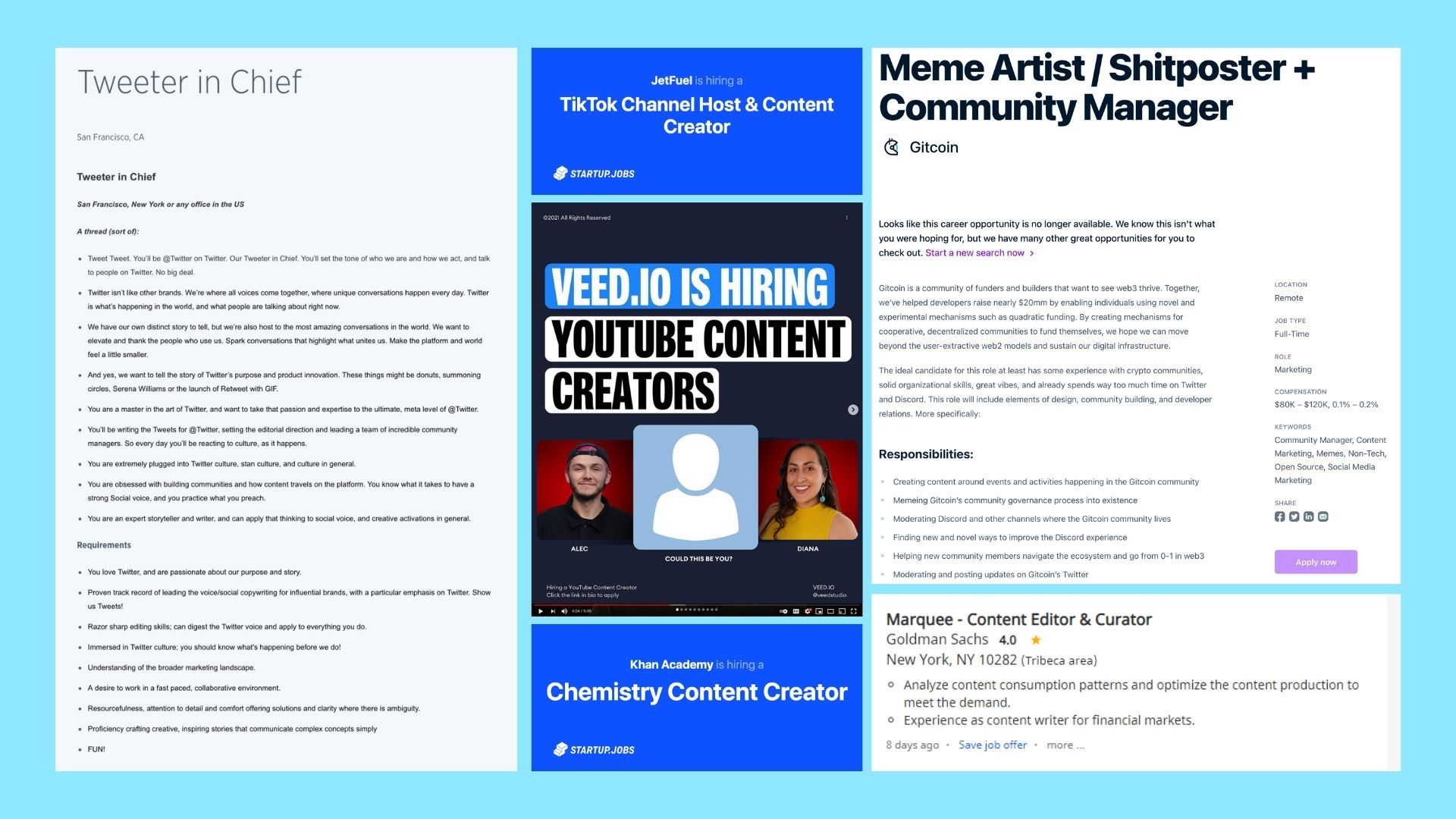
It depends on what kind of content you want to create as a creator. Also, there are so many new and ultra-specific roles in content like a dedicated meme creator. It's not unrealistic to create your own job title if you find a gap you can uniquely fill.
But generally speaking, if you’re newer to content creation you can expect to do more hands-on creative or social media management-related tasks. This can include memes, designing Canva graphics, recording a video, writing a caption, light community management, and scheduling content.
On the other hand, if you're a new writer you might be focused on self-publishing to sites like Medium, building your brand online, and getting any work you can under your belt so you can land more and better projects.
If you’re a more experienced content creator you become more of an “architect”.
You create the blueprint for what other creators need to create. For example, in my current role, I find myself doing more research-related tasks, content briefs, and hiring rather than designing or being in front of the camera.
Experienced creators know how digital marketing works. They know how to align content goals with business goals. From my own experience, what you do varies a lot depending on the size of the company and how many “hats” the creator needs to wear.
For example, in an enterprise-size business, you’ll likely have a team of specialists dedicated to a specific channel. In a small startup, you might have someone who IS the whole content team. They’re a generalist who can grasp and set the big picture in motion.
15 Short Lessons on How to Become a Successful Content Creator
Whether you work in-house or freelance, here are 15 lessons I learned on the job, creating for my personal brand, and from running a luxury dog sitting business when I was a broke part-time social media manager.
1. Build your personal brand and experiment on the side

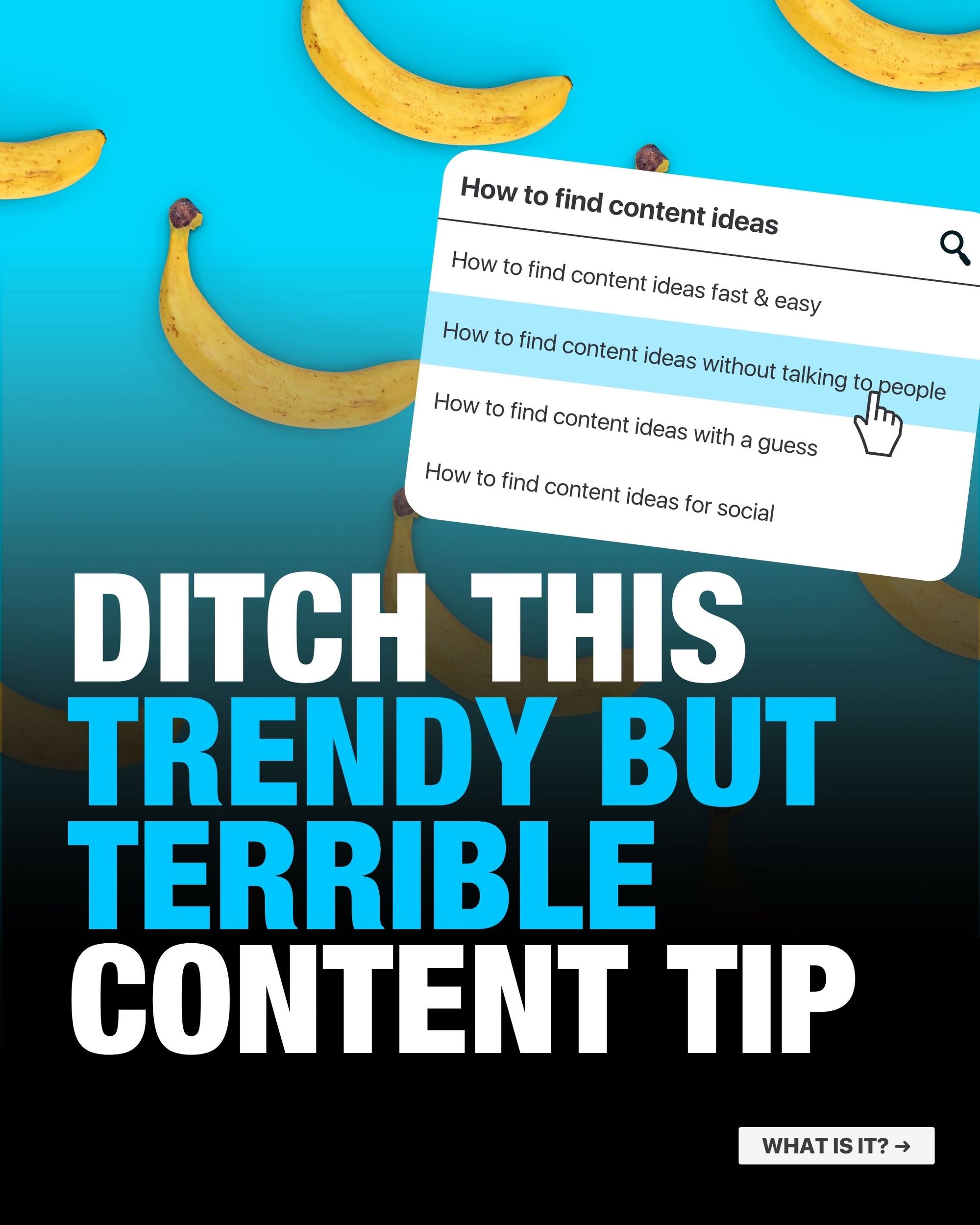
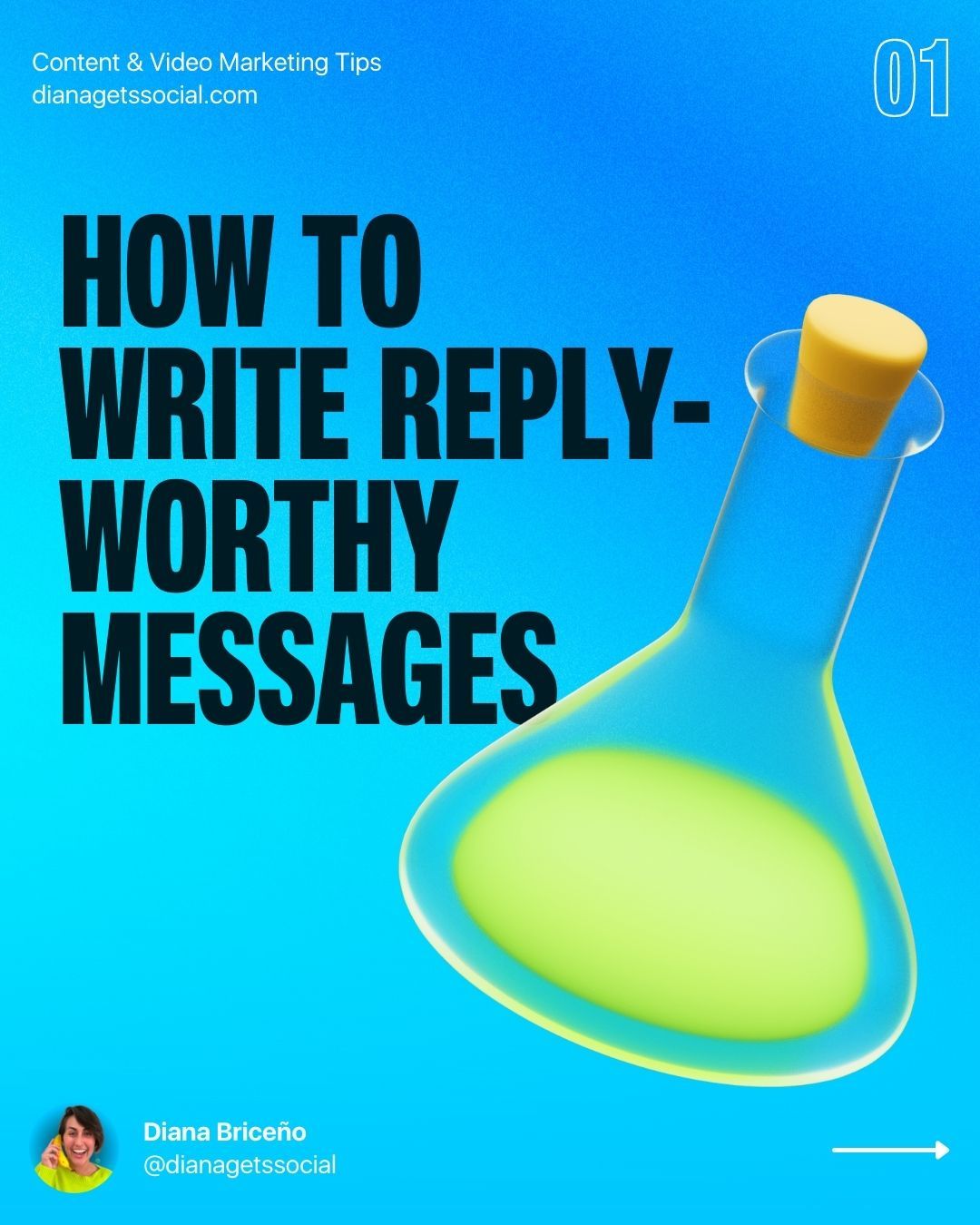
Having your personal brand or pet project gives you full freedom to experiment, fail, learn, and succeed without losing your primary source of income.
I learned more about business (and made more money) from starting my own dog business than any role I took from 2013 to 2017. Then in 2018–when I was burnt out and hated my job– I started making content for my personal brand.
This helped me learn the things I couldn't learn and do on the job. My brand is also something that will forever evolve with me and I can take with me no matter what I'm up to.
The worst that can happen is you fail and learn a lesson so you don't repeat the same mistake. You can't do better next time if you don't even start.
2. Read industry news
Pick a couple of authoritative people and brands to learn about what’s going on in your industry. This helps you get the context behind what’s happening to understand your audience’s present frame of mind.
You can use an RSS feed app–like Feedly–where you can save blogs with relevant news. You can also use Mail Brew to compile favorite newsletters, feeds, and creators into one customized hub.
Just be careful not to follow too many people and brands. You can have too much of a good thing. Follow one too many SaaS founders and marketers and you'll be distracted and mentally paralyzed by informational overwhelm (or maybe that's just me 🤣).
3. Write daily even if it's just a better-written text message

Be conscious of every moment in your day where writing is your chosen form of communication. Everything is content.
- Delivery instructions and special requests for your Uber Eats order
- Text messages to your partner, family, or friends
- Emails to an influencer you want to work with
- A Google review for your local coffee shop
- Slack messages to your coworkers
- Social media content
- Web content
- Newsletters
Some things to ask yourself when you write are:
- Is this as clear and concise as it can be?
- Is the text a massive visually overwhelming block to look at?
- What can I remove?
Become a more effective communicator by being conscious of how you create, structure, and distribute ideas before you hit 'send'. Writing a lot is easy. Being concise is hard.
Suggested Reads:
4. Find your voice and sprinkle in your own experiences
What do you do that nobody else says or does like you?
Let’s look at John Bonini who runs Some Good Content and is Databox’s marketing director 💁♀️
John not only makes learning simple and actionable–he sprinkles in his own real-life experiences. He turns a plain old fact into an engagingly educational story only he can tell.
Sure, it has all been said before. But it has never been said the way John might say it. And things have certainly never been said the way YOU would say them.
5. Be grateful for new opportunities but selective of what you say yes to
The more experiences aligned with your preferences you can get into your portfolio the more work like it you'll attract.
If you're in a position where you can't leave your full-time you're unhappy with and have no savings, that's okay.
What I did in the past (around 2016 to 2019) was I took on client work after work on my own time. This let me gain insight into myself and who I want to work with without giving up my only source of income.
Things I took into consideration:
- The type of work I wanted to do and how I want to do it
- How much they could pay me and what I need/want
- The kind of industry/business I want to work with
- My values and theirs
6. Create opportunities, don’t wait for one

Oftentimes the job description is a wishlist. I wish I could tell you I got my job at VEED because I'm the best marketer out there. But that’d be a lie.
It was skillful "luck".
That luck was a combination of being in the right place, right time, having the right skills, and pairing that with the confidence to put myself out there. Sometimes the best opportunities never make it to Indeed, a Tweet, or LinkedIn.
Humans are emotional creatures. Meet more people, ask questions, find problems you can do something about, and pitch yourself to help solve them.
Stop overthinking to the point you allow it to paralyze you mentally and physically in a state of inaction.
7. Listen to your industry’s audience
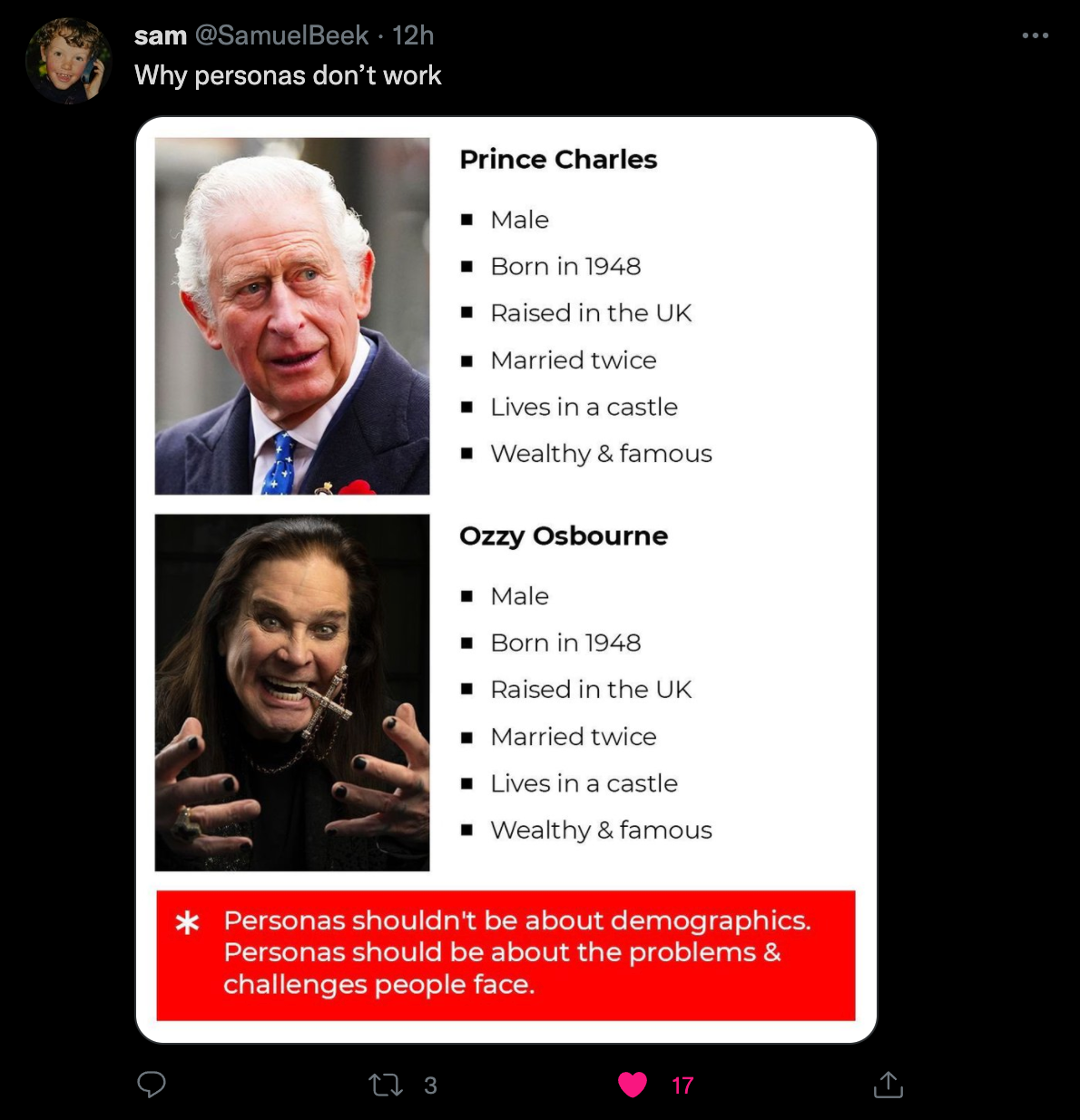
It’s not about what you want. What does your audience want? Who are they really? And I don't mean listing off generic demographical data.
Here are a few things you can work on identifying.
- Why does your current customer base come to you for?
- When they ask a question how do they word it?
- What people and sites do they learn from?
- What are they asking online?
- Who do they follow?
Content is not for you, your manager, or the CEO–it’s for your audience. Understanding them as much as possible will help you tell better stories.
Avoid trying to only find the answers online. Find ways to get on calls with your target audience. Nothing beats a conversation in real-time.
You need to understand not why do social media followers like you but what do the people who actually pay you need (or those who fit the profile of someone who would). This way you can map their problems to content you need to create so you help others like them.
8. Don't assume someone knows what they want or that you know better than them before a proper conversation with them

People will self-diagnose and think they need A,B, and C the same way you do when you’re sick and Google your symptoms. I could have a harmless rash and after running a search WebMD will tell me to quarantine myself and start making funeral plans.
So yes, your audience will self-diagnose and you may know better than them but...
Bad content creators are bad listeners who don't ask enough questions to the right people therefore never go deeper than the surface level of a problem.
Imagine you're a doctor. You need to ask questions so that after listening and observing your patient you know exactly what to prescribe to fix the root of the problem.
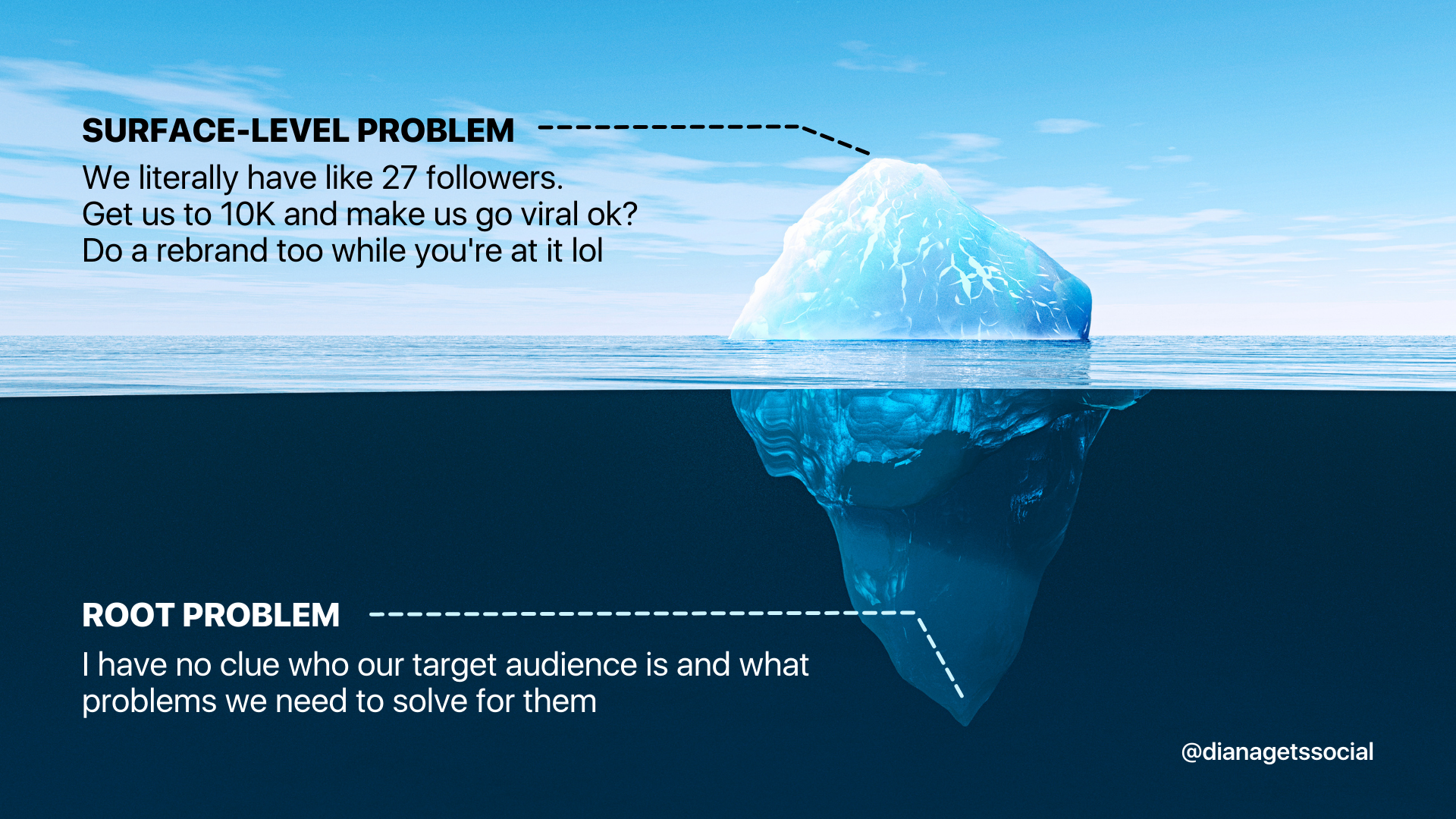
The person who thinks they want 10,000 followers might actually want to increase YouTube traffic, social mentions, shares, and amount of collaborations per month.
Assuming kills content that could've been great AND it leaves money on the table. Listen, solve more problems, make more money.
9. Solve problems. Don’t blindly follow viral trends.
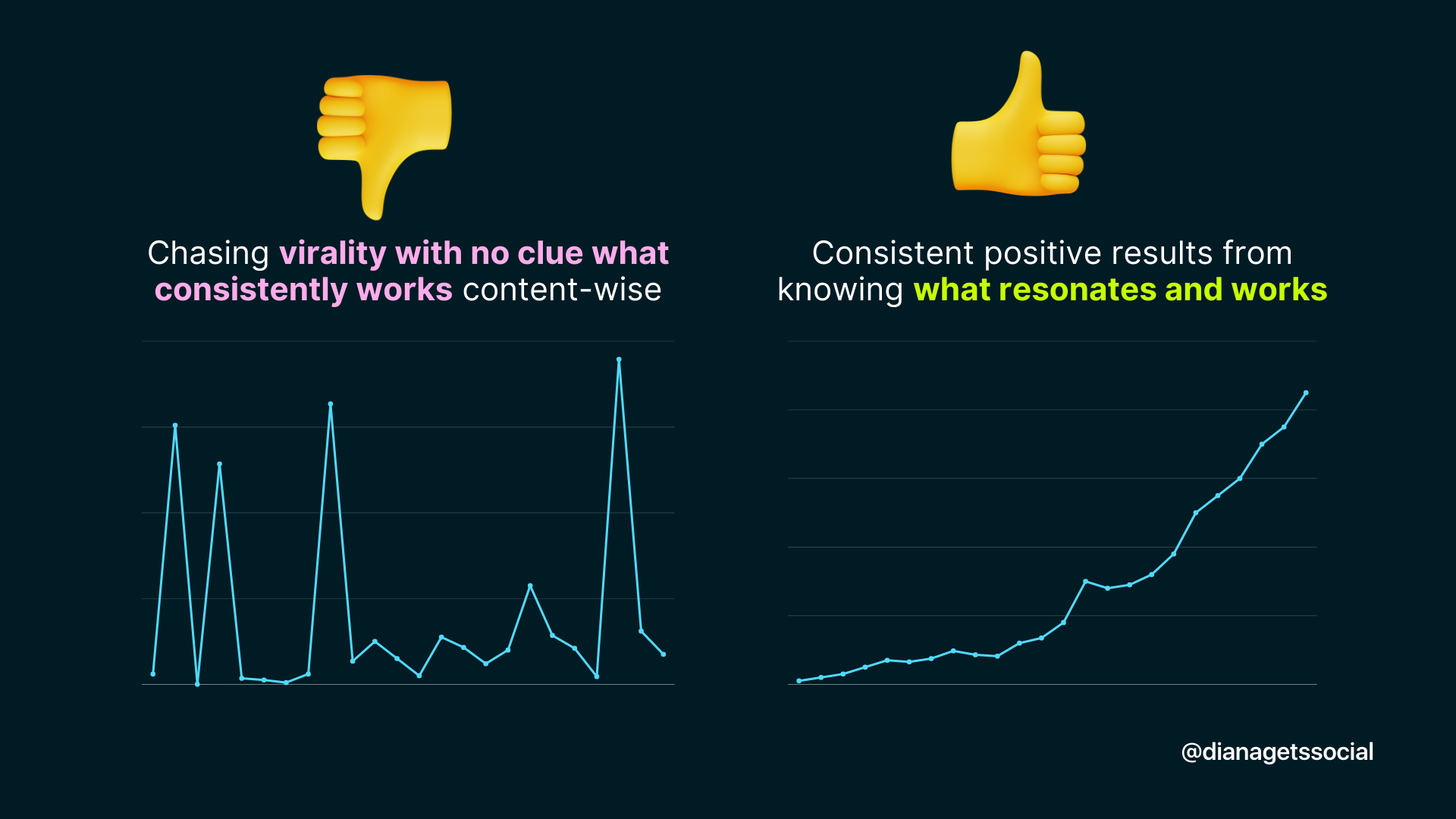
Viral content is not always relevant content for your audience. Trends and virality are like a drug. It's hard to think objectively once you get a taste of the high from a sudden influx of views, comments, and followers.
Chasing this leads to chasing temporary spikes in performance rather than figuring out how to grow consistently.
Adopt a trend only if it fits your content and brand as a whole.
For example, at VEED we know which topics tend to drive the most traffic back to our site. These topics solve problems people are ready to pay solve OR educate people so they eventually get to the content that covers these higher intent problems.
10. Follow fewer people and be selective
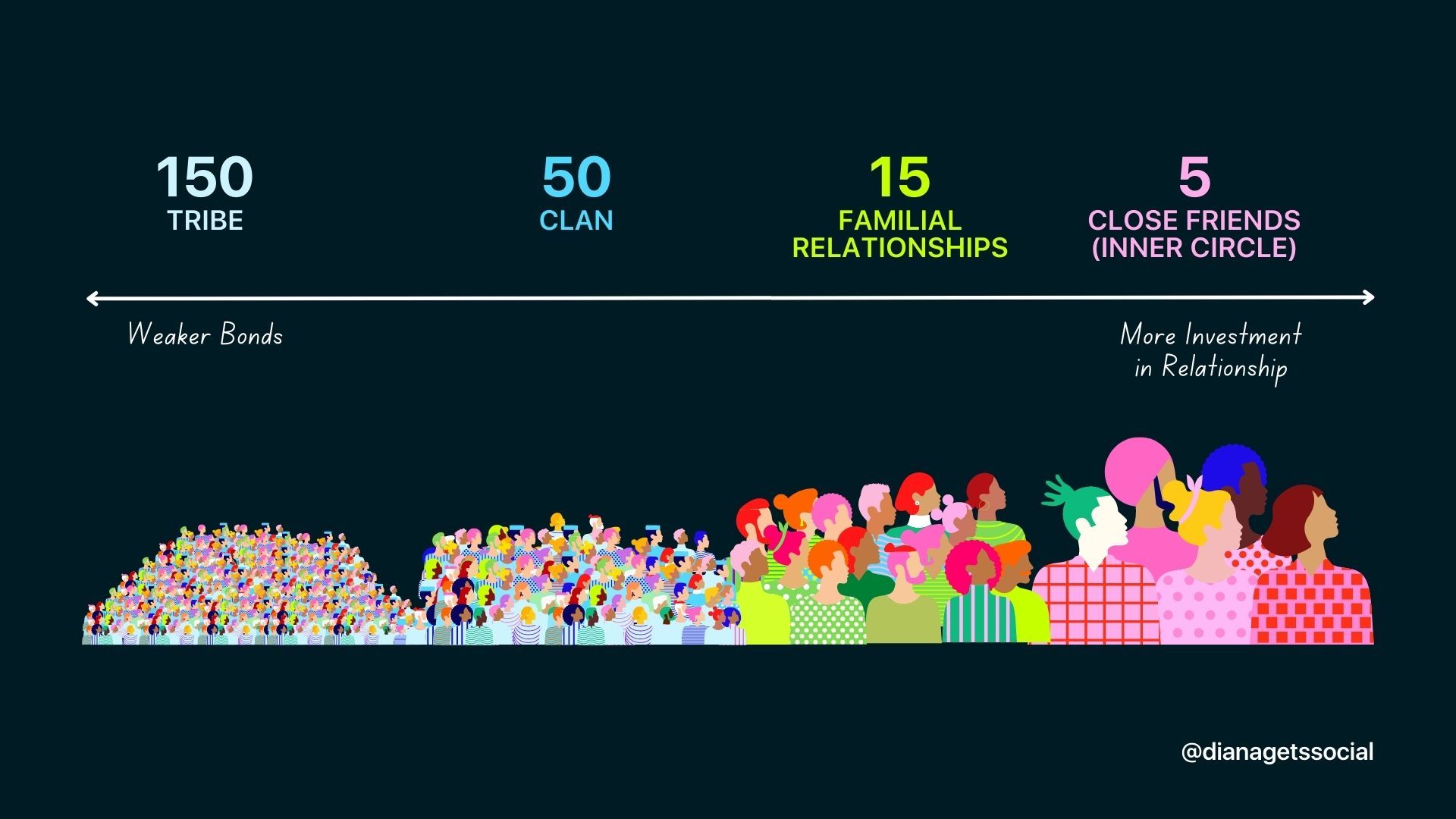
Be selective of who owns a piece of "real estate" in your brain when you click a follow button.
Even if you follow 500 great people those are more relationships than a human alone can handle.
According to Royal Society Publishing, Dunbar's number' is the notion that there's a cognitive limit on human groups of about 150 individuals. This is because to maintain group cohesion, people need to be able to take care of their own needs, as well as coordinate with other people in the group.
Because of Dunbars Number and the negative effects I've personally experienced on my mental health from following too many people, I now have strict boundaries such as:
- Follow fewer than 100 people
- Don't follow back just to be nice and avoid hurting feelings. I don't want to be friends anyway with someone who takes a follow so seriously 🤣
- Ask yourself "why am I following this page and how does it make my feed better?" instead of unquestioningly following a new person.
- Run some cleaning every now and then to unfollow inactive accounts or accounts that became spammy, not as helpful as before, or not my cup of tea anymore.
At the end of the day, no Twitter, Instagram, or TikTok expert–fake or real–can give you highly personalized advice in their content.
Ultimately, working in environments with people who know their stuff plus your own trial and error is what will give you answers with clear next steps.
11. Eliminate 'that's not my job' from your vocabulary and build complementary skills

People often shame wearing all the hats and say “that’s not my job”. But it’s often knowing when to do and study the things that are technically not your job that help you do your job better and get paid much more for it.
This is especially important if you have little to no experience. I've heard too many new graduates complain about how they have a degree yet nobody will give them a job yet they turned down opportunities that could've been a good start because they felt their degree somehow made them superior.
You need to roll up your sleeves and do what you gotta do for you to get your foot in the door or someone more humble and hungrier to prove themselves than you will do it.
To be clear, yes, there is a gray area where you have to decide if there's a learning opportunity (or not) because many people do try and take advantage. Just make sure you're really being honest with yourself and it's not your own ego getting in the way.
The key is pinpointing the complementary skills that'll help you do better. Figure out what you could learn to do better and solves a "shut up and take my money" kind of pain point for a client/employer.
Specialist or generalist, learning different things can help you progress.
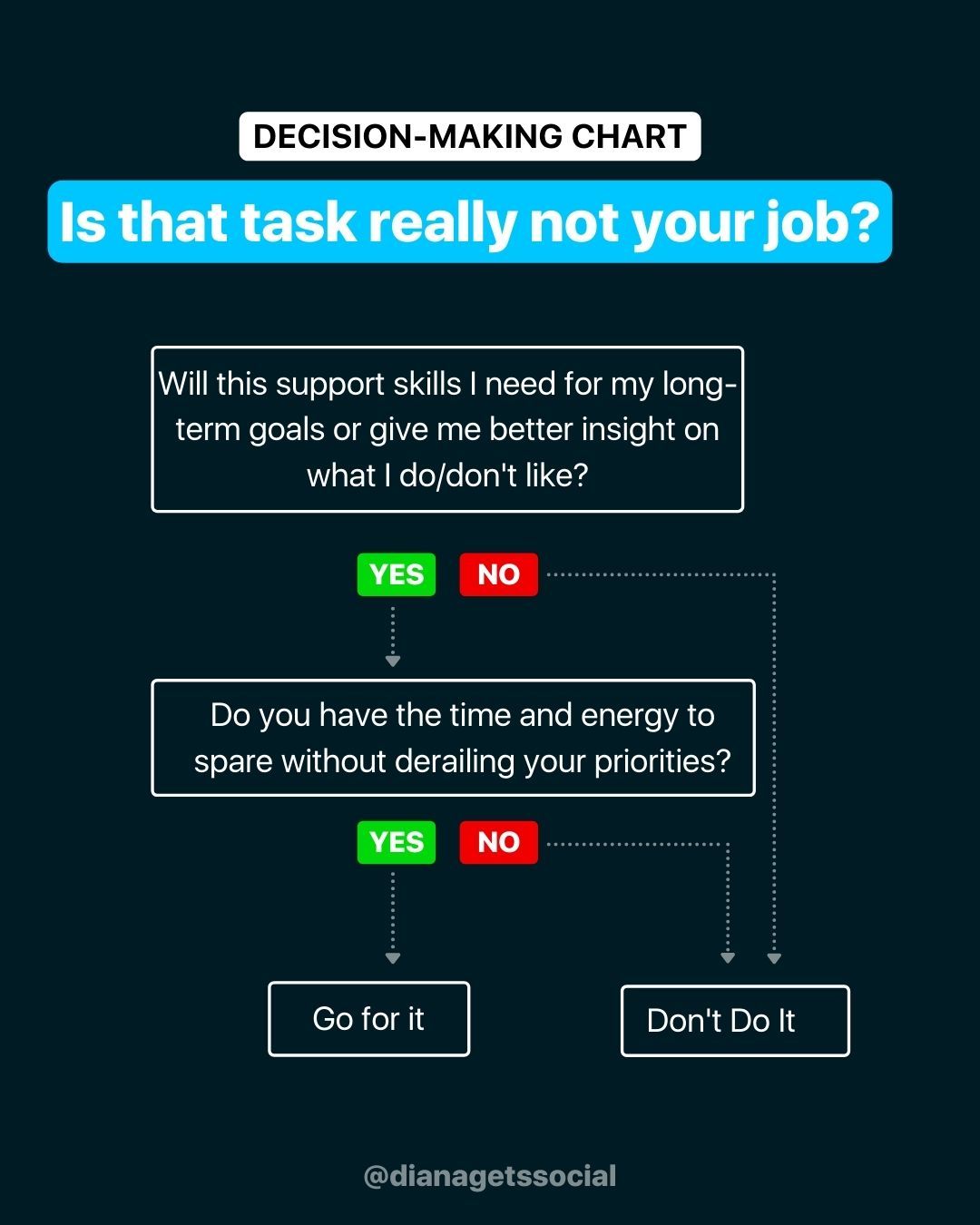
You might specialize in writing blogs for SaaS companies. But would you hit your peak potential if you only ever learned about improving the flow of your writing?
You'd have a better shot at landing better work if you learned about things like SEO, marketing, how to build a valuable network, and working for a SaaS company.
My personal observation is specialists do well as freelancers hired for a highly specific in-demand task. They also work well as part of a large corporation where their job is highly focused on one main thing.
If you’re like me and work in a startup (or run your own business), you need to be more of a generalist. Being able to wear multiple hats before you hire help is a must in the early stages of growth and can't build the dream team just yet.
If you have zero experience and don't know exactly what you want to focus on content-wise, say yes to as many opportunities as possible. At this point in your career, it's less about making a lot of money now and more about landing the educational and insightful experiences you need to build your happiness, self-awareness, & be financially well-off in the long term.
I see too many brand-new creators who follow inspiration pages with trendy #aesthetic quotes about being paid big money because they deserve it. The reality is you don't just wake up one day and justify to your client or boss that the only reason you should make more money is "I deserve it".
I'm not saying you don't by the way. Just be honest with yourself about where you're at and what you need to do to take the next step forward.
It's important to humble yourself, do the work, and have undeniable facts about the results of your work that you can use to explain why you deserve what you want.
12. Don’t work with uncoachable micromanagers
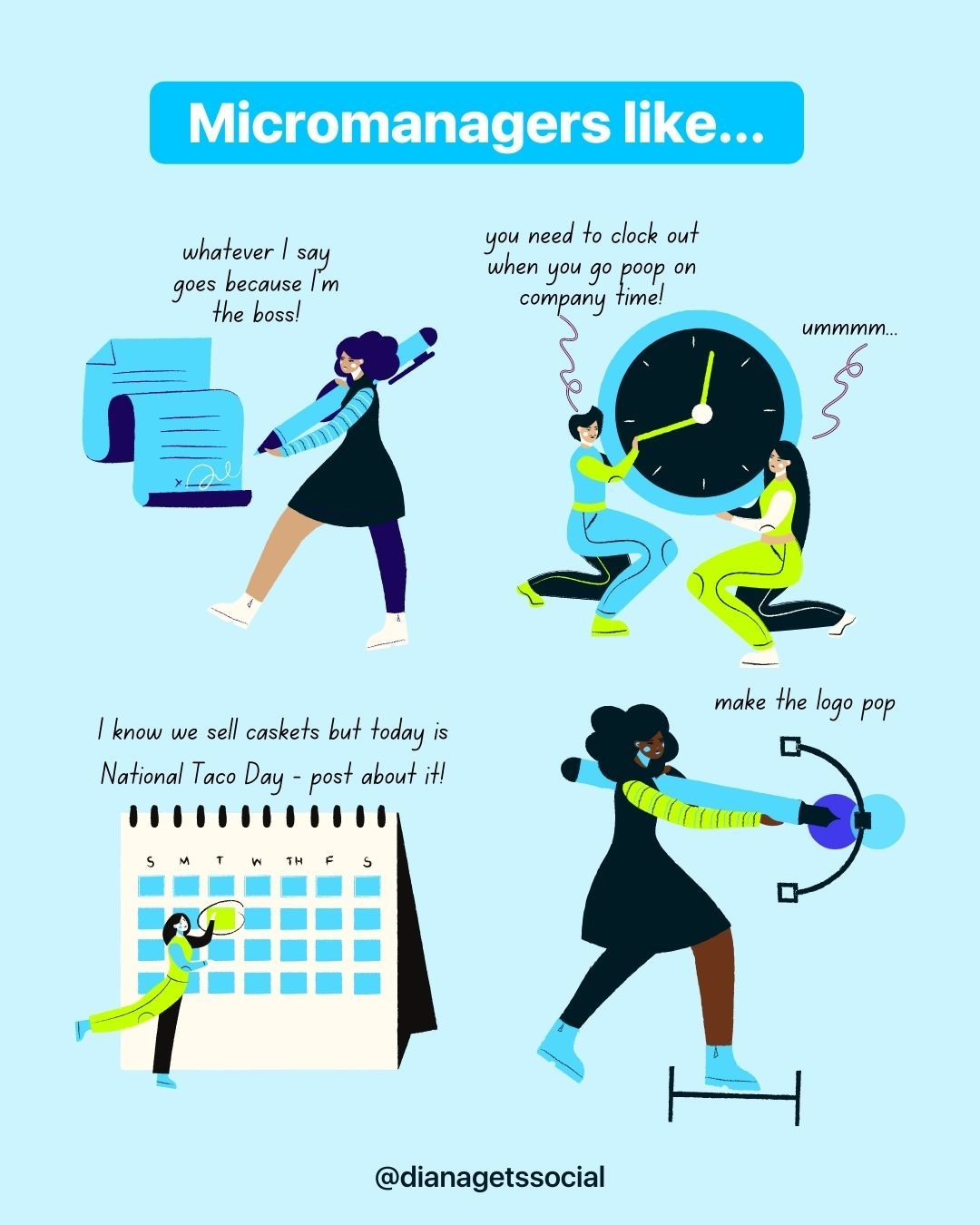
You can’t take a job and be mad that nobody cares or respects content when you didn’t do any vetting beforehand. It’s your responsibility to make sure people get what you do (and why it matters).
With that said, always interview your potential client or employer.
You want to understand things like:
- How much do they know about content? Ask questions that probe at this.
- What exactly do they want to achieve through content? How does it support their business?
- Are there any other problems they might not even know about that you can uncover? Ask them how the business is doing and what they think is working vs not working and why.
- How good are they about letting go of some control and letting the pros do their thing? Run something by them to gauge their response. Pay attention to their body language more than their words–did they say one thing but their body tenses up?
- How patient are they? Be upfront about how things can take time. Again, read the room's body language.
- What did they like or not like about whoever they last hired for your job? Why are they gone? What did they learn from that experience?
One of my coworkers interviewed not only his boss but also spoke with several of the employees including myself. I thought this was a smart way to get more real feedback about a company you're considering working for.
13. Stop posting every single "great idea" someone in the company has (even if it's your boss's idea)
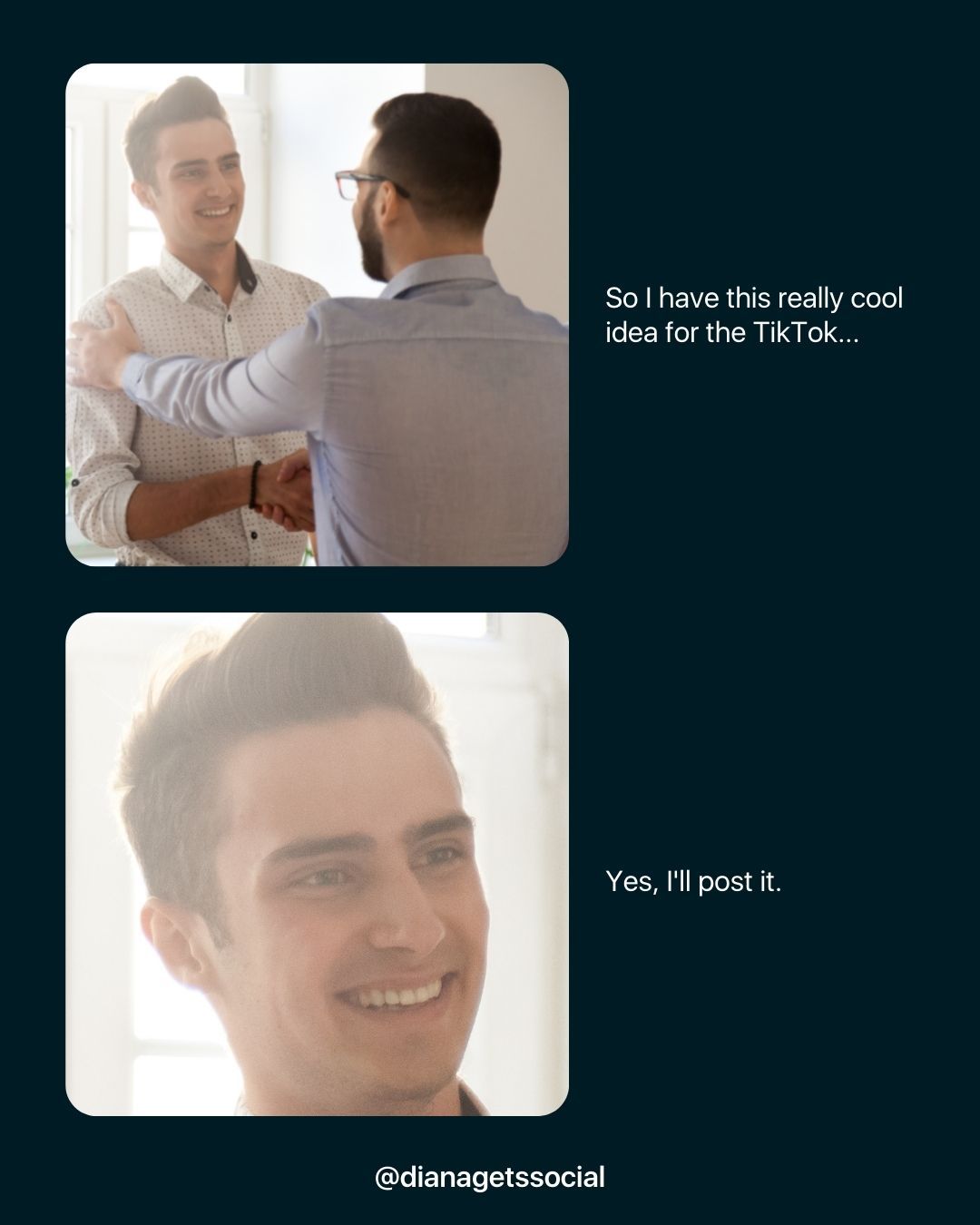
People-pleasing leads to bad content. Bad content makes you look like a bad creator. Your job as a content creator is to help the brand’s target audience solve their problems.
I know it's hard to be firm about this. Maybe you fear you'll lose your job. But you will lose your mind (and probably your job) if you say yes to every request that strays away from content and company goals.
It's important people not only know the company goal but the goals and priorities of teams within the company. This helps with prioritizing what and how things get handled. It also helps others understand why their idea will or will not be implemented.
Lastly–to make your life even easier–set up a marketing pitches form. The form collects pitches to review and decide whether or not they'll be implemented. If the pitch isn't there the pitch doesn't "exist".
This makes people think about what they're saying, recognizes their valuable input, and gives you one simple hub to approve/reject incoming pitches.
Take care of yourself
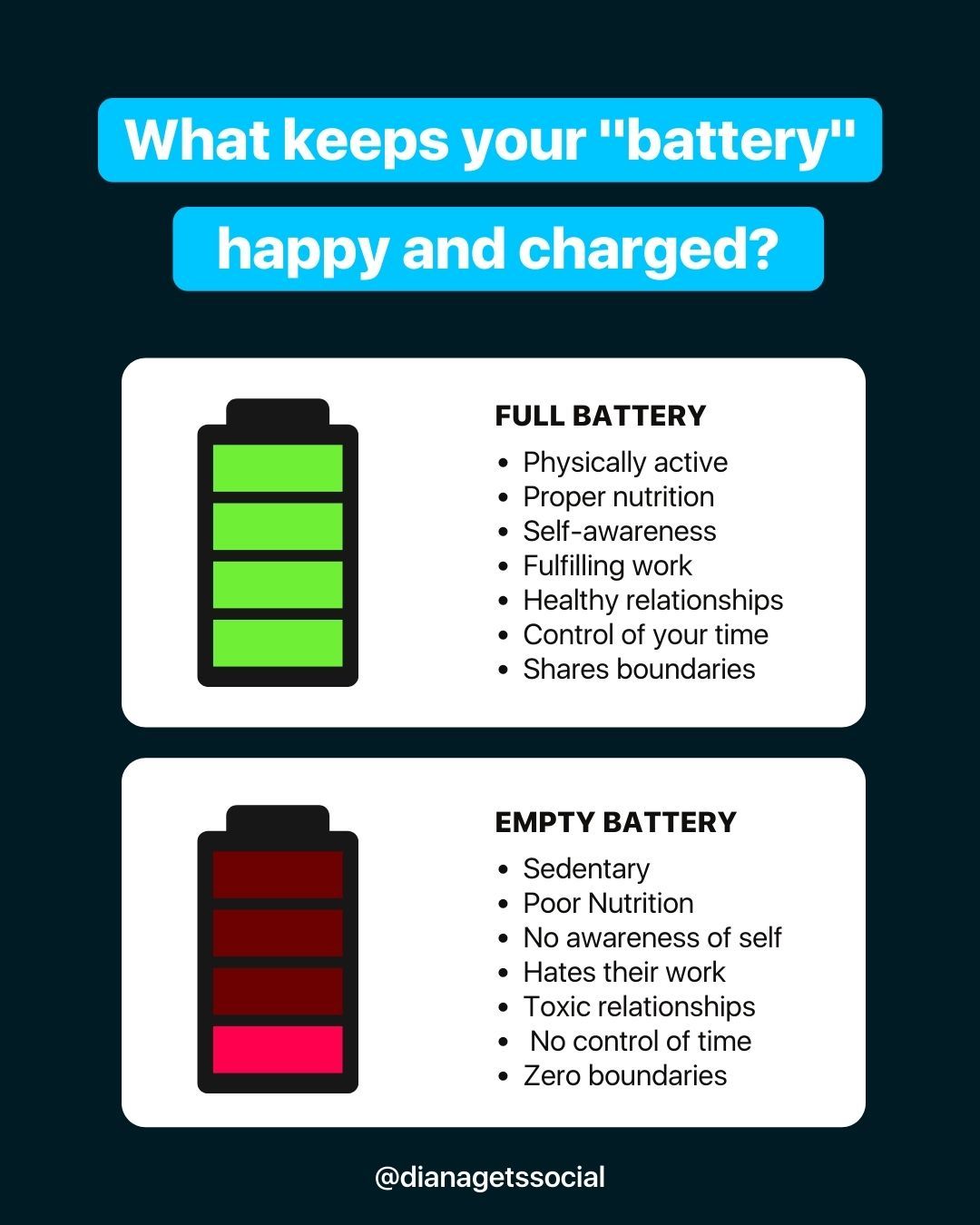
You're only as good to others as you are to yourself. You deserve to feel good and give yourself the things you need to feel and perform at your best.
Granted, it also depends on what kind of job you take. You can’t expect low stress in certain roles.
An example of this is my current job VS an old job I held.
I used to handle copywriting, content writing, direct mail, and email marketing for a real estate broker who catered to the 0.01%. These were really busy high-profile people who whenever they wanted something you had to be available. I had no life, slept with my phone under my pillow, and was treated poorly 🥲.
While I wouldn't say my current job is stress-free, it's not toxic like that old job. I'm treated well, paid well, work with great people, believe in the company and product, and the founders are always very transparent.
Explore your limits and yourself so you develop the self-awareness to know what you want.
To be able to dictate when and where I work
To have a clear goal but the independence to choose how I will achieve it.
To work with companies I care about (even better if I'm already a customer)
Be honest, kind, and constructive with your feedback. There's no need to verbally abuse me to get a point across or try to "break me".
Prioritization of employee happiness. Support the people who help you build your business and you will create loyal fans internally.
Generous maternal and paternal leave. I want to be a good mom and build my career, I need to work somewhere that supports this so there's more equality for women in the workplace.
15. Be Resourceful
It’s easy to get caught up in the tools and mentorship that people love to talk about online. You begin to wonder how much more successful you’d be if only you had:
- A DSLR
- A subscription to 5 different popular tools
- A mentor to guide you
- Better this, better that, etc
The more self-sufficient you become as a resourceful creator the more you realize the tools don’t work unless you do.
While having some of these things can help, they won’t make you or break you. A tool is just a tool, a coach is just a coach.
YOU still need to put in the work.
It's YOU who makes all the difference.
The foundations of your greatness aren't bought–they're built through the challenges you work through.
If you have the privilege of having access to wifi and a smartphone you can learn through YouTube and Google. The other part is taking on opportunities that will be your “college education” as a content creator.
How to successfully create different types of content
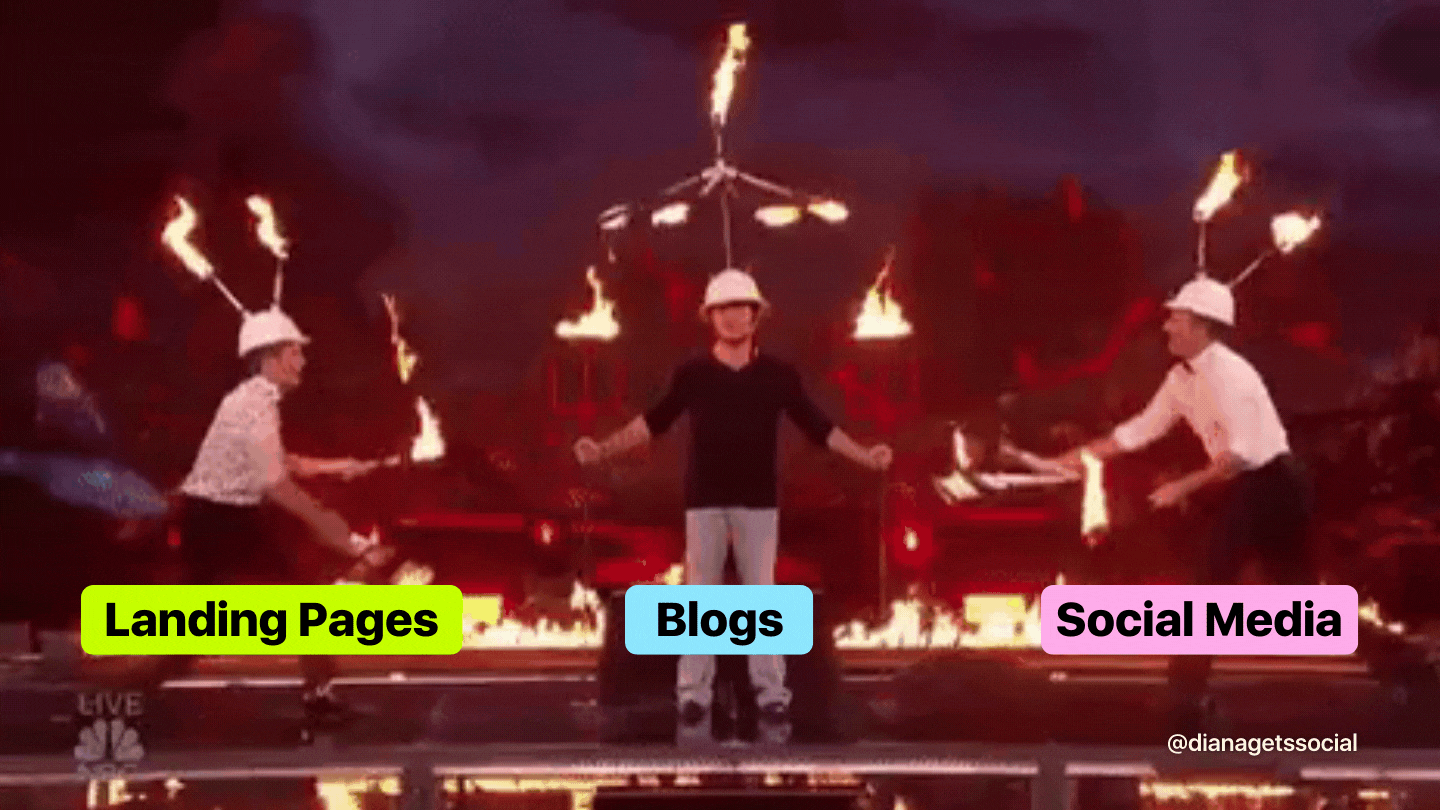
While there isn’t one single way to approach everything, there are some habits that can help you do better at figuring out what works for you.
- Save Scroll-Stopping Content: Get into the habit of saving links and screenshots to content that makes you stop and listen. Use this to spot patterns in great content from the words used, how they’re structured, design elements, and anything else that stands out.
- Research brands who are doing it right: Break down the content of brands you think are doing content right. Figure out what about them is it that just works? While you don’t want to copy them you can find patterns and gaps the more you do these breakdowns. You can also post your learnings as content.
- Measure success, document it, make it repeatable: Post with a clear goal or purpose. Then, measure the results of your content. You can’t make better content if you don’t know what works, what doesn’t, and what you can do the next time around.
- Do it your own way: While it’s good to study others you don’t want to BE others. Don’t be afraid to take creative risks. People should ideally be able to know content is yours from the way it reads, sounds, and/or looks.
- Repurpose with purpose: Don't just copy/paste a link or format from one platform to another. Each platform has its nuances. Every post must adapt to these (e.g. a post repurposed from Instagram for LinkedIn would be edited to adapt to the more professional tone).
- Focus, focus, and more focus: Choose 1-2 marketing channels and master them. There will always be something more you could do, another platform to hop on. The reality is you can’t be everywhere successfully if you don't have the time, documented guidelines for scalable success, and budget to hire help for handling a more complex content ecosystem.
- Use the right tools: The right tool is not the most popular or expensive one. Use what works for you and actually helps you be more efficient. For example, there's no way in hell I'm investing time and energy into learning Premiere Pro and After Effects so I use VEED. Although I know how to use Photoshop, Illustrator, and XD (I studied graphic design) I'll use Canva or Keynote to templatize, collaborate, and work quicker.
Types of Digital Content Creators Can Create

A content creator isn't just a YouTube or TikToker. Here are some examples of digital content creators can create:
Text
- Articles
- Blog Posts
- Reviews
- White Papers
- Ebooks
- Case Studies
- Newsletters
- Product Content
- Social Media Post Captions
- Tweets
- Quora replies
- Reddit posts and replies
- Guides
Videos
- Tutorials
- Webinars
- Presentations
- User-Generated Content
- Contests/Giveaways
- Live Streams
- Q&As
- Reviews
- Unboxing
- Vlogs
- Behind-the-Scenes
- Interviews
Images
- Infographics
- Memes
- GIFs
- Quotes
- Illustrations
- Photos
- UGC photos
The best tools for content creators (my personal picks)
This list is based on my own experience and tools that I actively use as a content creator myself who works with a team of creators. Don’t get too hooked up on tools especially if you can’t afford them. I'll post free alternatives for any paid tools.
Ahrefs: Content Research

If you’re researching content to create for the web such as blogs and landing pages, Ahrefs is your sidekick. I mainly use it to find and analyze content opportunities for generating traffic, link building, or virality. I also use it for rank tracking and content gap analysis.
Free Alternatives: Ubersuggest (free with some limits), Google and YouTube autocomplete
Grammarly: Editing Typos

Fix grammatical errors quickly and easily with the free browser extension. I tend to use Grammarly when I'm done writing. I also ask writers I hire to use the tool. I use the free version and don't feel the need to upgrade.
Hemingway App: Editing Writing Structure

Hemingway is a free tool that highlights lengthy, complex sentences and common errors. Once I finish writing and using Grammarly, I run the content through Hemingway. I use it to find places the writing could use restructuring.
I don’t take every single suggestion or else I risk sounding too robotic. Use your judgment when using tools like these that speed up your workflow.
Canva: Quick & Easy Graphic Design
Canva makes graphic design made fast, easy, and painless. I make templates for content I produce often (like graphics for Tweets). I also use Canva to create decks I need to modify often like this one below to introduce new writers to our style of research and writing.
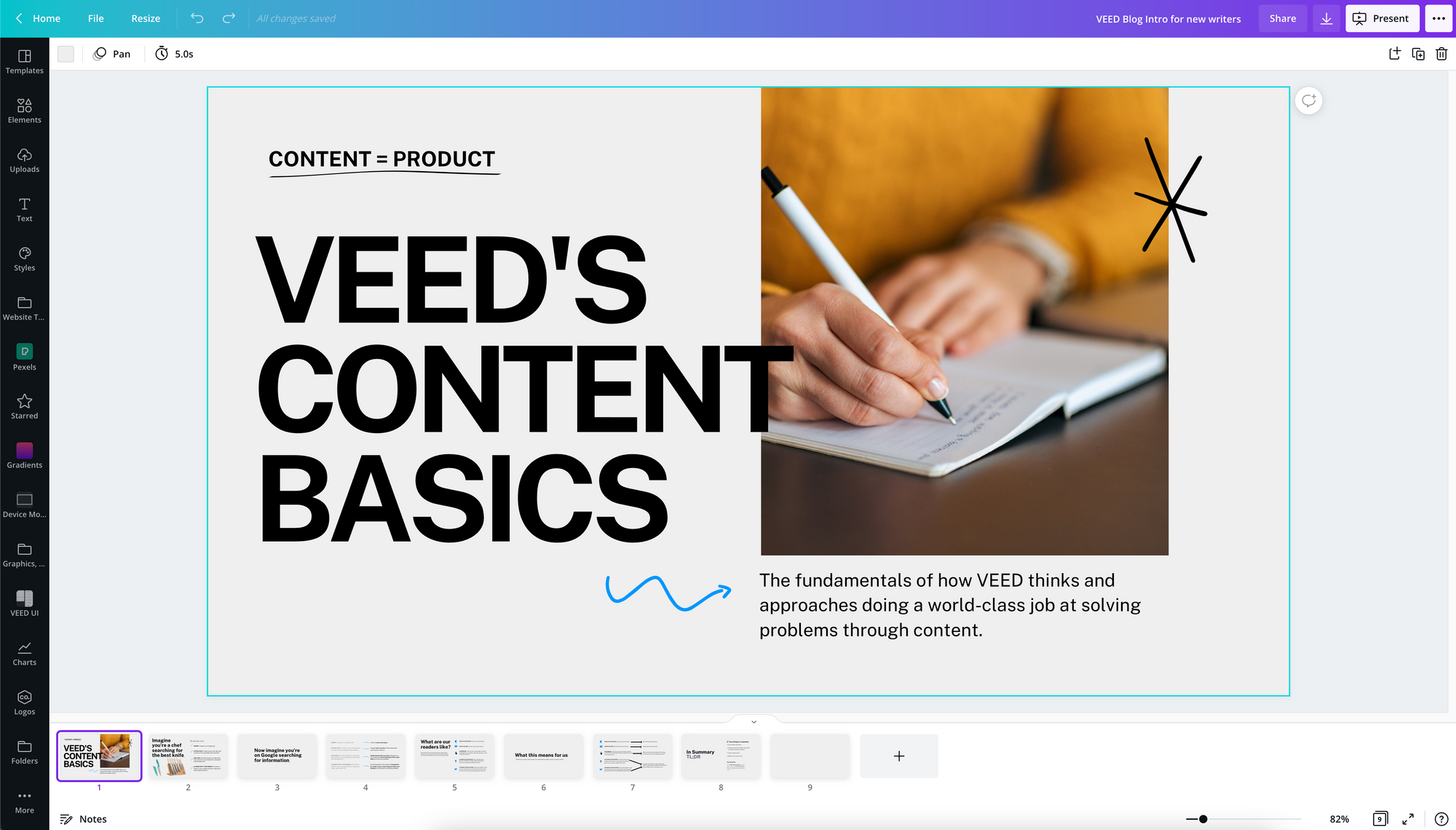
This helps me create content faster (e.g. if you make a lot of YouTube videos you might make video thumbnail templates)
The free version is enough for most people but if you want to add your brand fonts, colors, and unlock premium graphics then its worth paying to upgrade.
Free Alternatives: Keynote (Mac & iOS), Google Slides.
VEED: Video Editing Made Simple
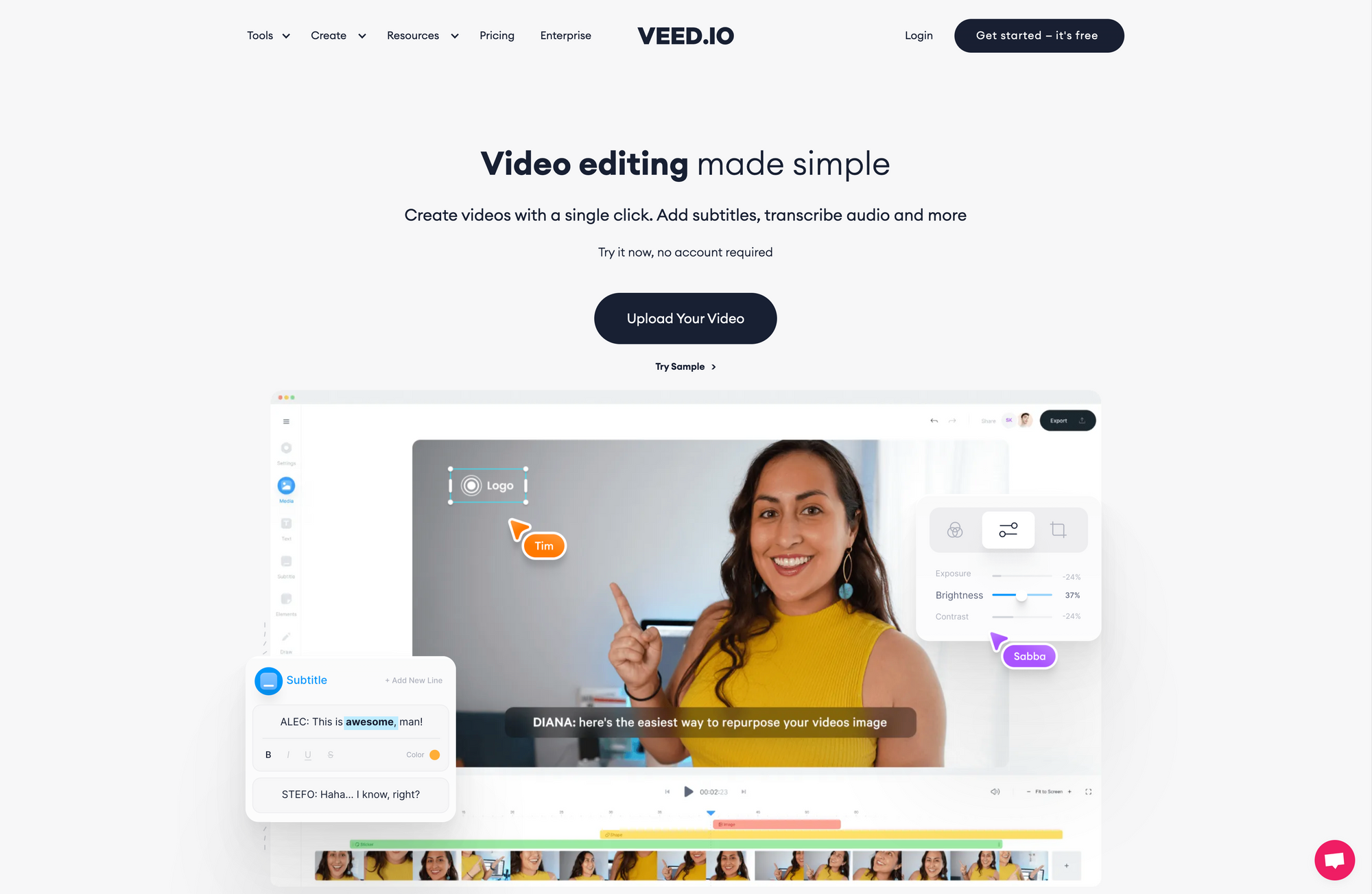
VEED makes video editing simple with its online video editor. Yes, I work at VEED but I was their customer before I joined so I reallllllyyyy believe in them and love them.
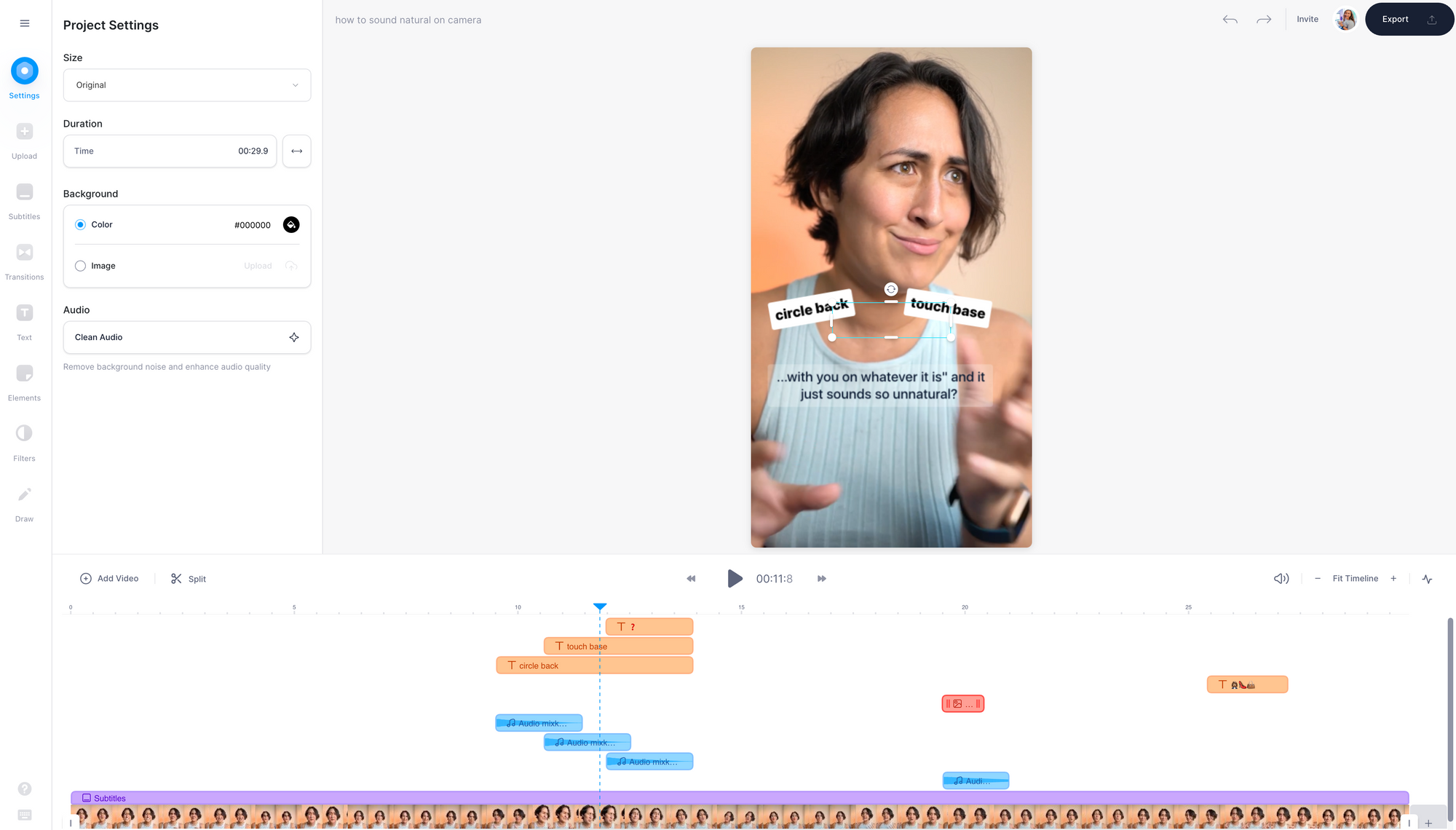
I make engaging videos in a fraction of the time it would take with fancy software. I mainly use it for subtitles and making Gary Vee-style videos with the text and progress bar animation. I don’t have the patience to learn Adobe Premiere, After Effects or FinalCut.
If you’re a non-video editing professional who works in content like me and need to make a lot of content then a simple but powerful tool like VEED is for you.
Airtable: Powerful, versatile, good-looking spreadsheets and databases

Airtable says they’re a low-code platform for building collaborative apps. To me they’re the Canva of Excel spreadsheets (at least based on how I use them).
I love to use Airtable templates. But mainly, I make my own templates to group, filter, and sort data exactly how I want it (minus the frustration of clunky spreadsheets). The integrations and automation functions are a major timesaver!
I used the free version for years and it was enough. I upgraded once I started working with a team and needed more capabilities.
Free Alternative: Google Sheets
Notion: Process Documentation

Document your person or team processes, guidelines, and goals. I like using Notion to store documents such as our style guide, documenting company goals, and note-taking. Our product team at VEED also uses this for receiving, filtering, and prioritizing pitches for what our team will build next.
The free version is pretty complete but if you want more storage and export options then its worth the upgrade.
Free Alternative: Google Docs
The best free and paid resources to learn about content creation and how to become a content creator
The following resources are people, books, courses, and social media feeds whose content I trust to learn from.
I'm not a fan of most social media industry blogs because the advice is trend-oriented, aesthetics-focused, and often lacks the tactical depth of actual subject-matter expertise. I think most social media industry news sites create great content for SEO but the advice itself I'd plug my ears and figure things out myself.
1. Ahrefs YouTube Channel
Ahrefs breaks down a complex subject into easy-to-consume content. They make SEO feel more doable thanks to the combination of their expert knowledge, use of plain language, multiple content formats you can consume a post in, and how thorough they are.
Price: Free | Browse It Here
2. Some Good Content by John Bonini
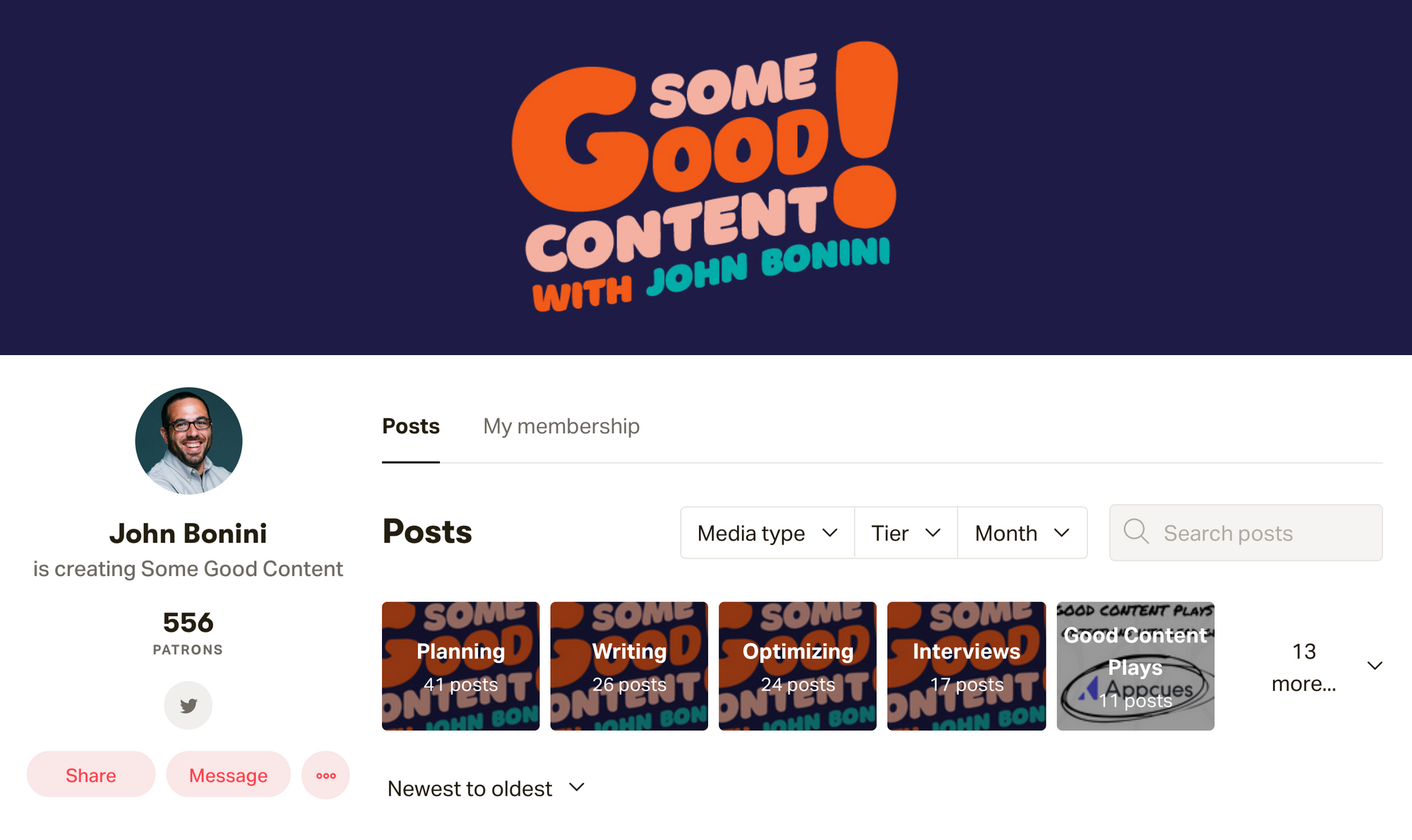
If you're new to being in a leadership position as a marketer, John's content is more than just good... it's more like some REALLY fucking good content. I like to read his text posts with my coffee some mornings or listen to the audio posts during a nice long walk. Being new to something feels lonely. John's knowledge makes you feel less alone and empowered to go do the great job you want to do!
Price: Currently starts at $10 per month | Sign Up Here
3. Doing Content Right by Steph Smith
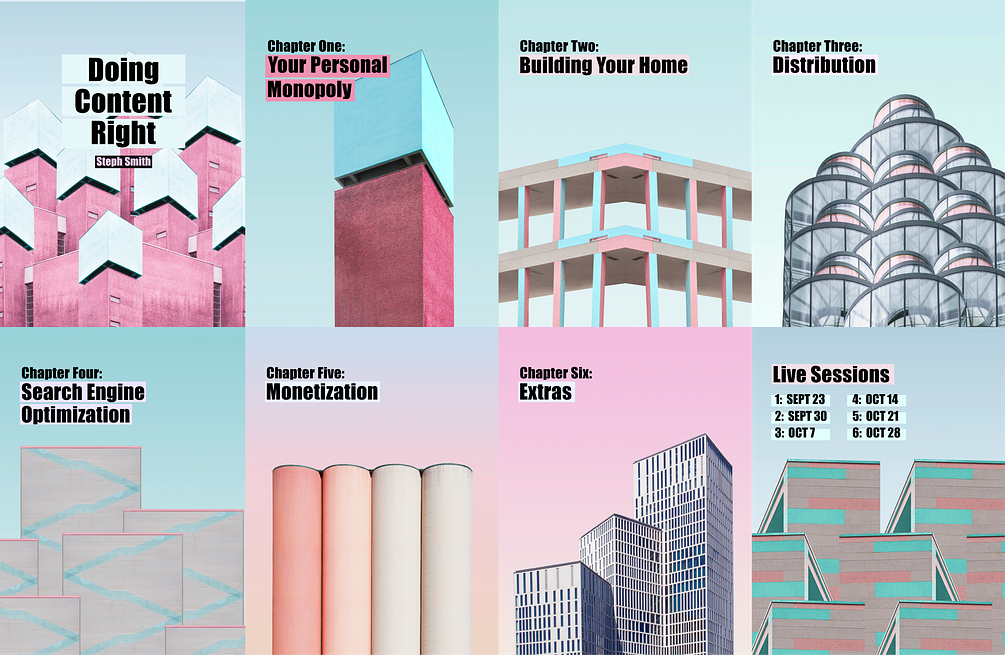
If you want a pretty solid big picture overview of content and what to know this is a great deep dive. Doing Content Right dives into everything from SEO to newsletters to sistribution and monetization. I only wish I had this book on day 1 of my career.
Price: Currently $100 | Buy It Here
4. The Psychology of Graphic Design Pricing by Michael Janda

Don't be put off by the words 'graphic design' in the title. If you're freelancing and doing creative work, The Psychology of Graphic Design Pricing is a great guide to understand the what, why, and how about fairly pricing yourself in multiple scenarios. Mike Janda is the former owner of Riser agency who had clients like Disney, Google, and Warner Bros so you know he knows what he's talking about.
Side Note: I have also worked with him 1-on-1 when I needed his coaching services (highly recommend). He's not only a smart dude but a really cool and great person!
Price: Currently $21.67 | Buy It Here
5. Everybody Writes by Ann Handley

This is one of those books you keep close to you for reference. It covers everything you need to know about how to approach writing great content. One of my favorite takeaways is the ugly first draft which is now a staple of my process.
Price: Currently $13.39 | Buy It Here
6. This Book Will Teach You How to Write Better by Neville Medhora

If you just want to learn the basics of writing good copy, this is it. It's basically a crash course you can read this on your lunch break and come back with simple, actionable, and highly-useful pointers. I think everyone who has ever had to send an email or a text message should read it (so basically everyone).
Price: Currently $5.00 | Buy It Here
7. Your Own Personal Brand's Trial & Error
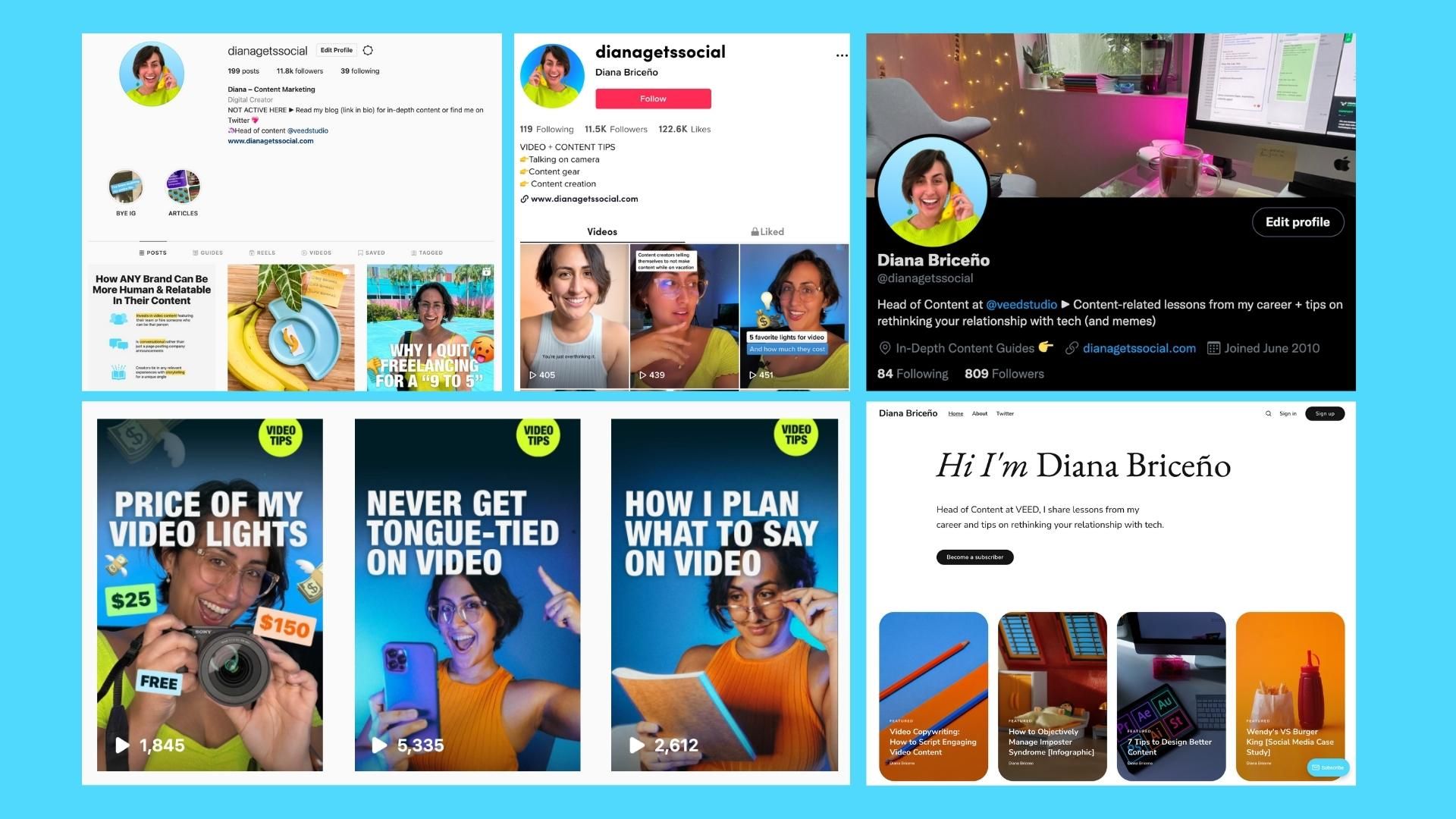
You can read the viral Twitter threads by the experts, watch their videos, and break down their growth. But nothing will beat you just diving in, making mistakes, and learning how to make the right content to capture the right attention. Yes, it does help to learn from others but be careful. There is such thing as oversaturating your feed with so much of a good thing it becomes a bad thing (aka–informational overwhelm and decision paralysis)
Price: Your time and energy (invest it wisely)
8. Marketing Examples by Harry Dry
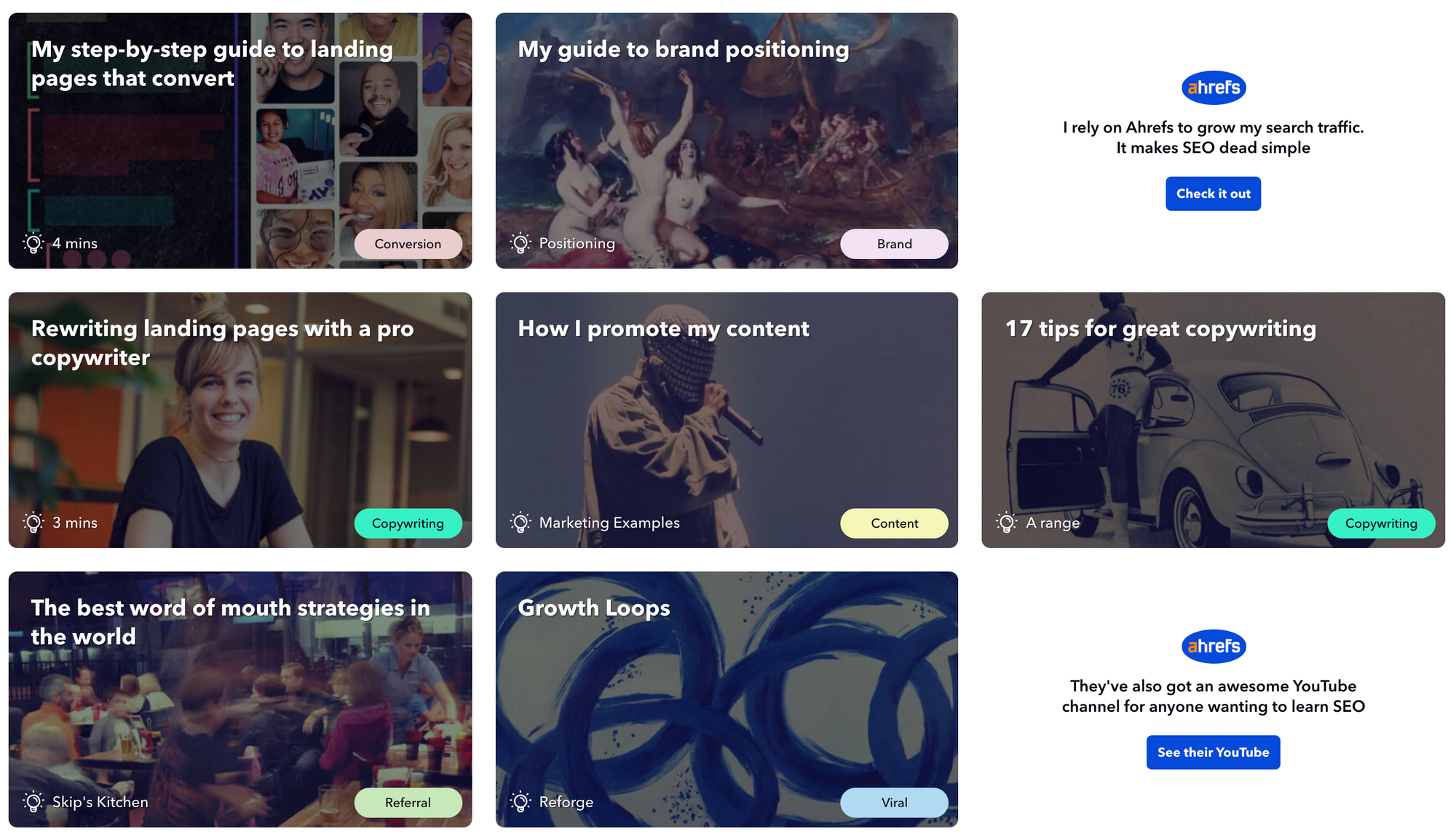
Harry makes learning from the experts fast and simple. It's great for us to roll up our sleeves and do our own digging. But sometimes it's nice to get the breakdown from someone else who can keep it clear and concise.
Price: Free | Read It Here
Frequently asked questions about content creation jobs
What exactly is a content creator
A content creator is in charge of making written, audio, video, or other forms of visual content for platforms like social media, podcasts, or a blog. Creators are responsible for engaging a brand’s audience to get likes, comments, follows, site visits, downloads, email sign-ups, or sales.
How much money does a content creator make?
That depends on so many variables! For example, let's say you're a writer.
A new writer might charge $100 for a 1,000-word blog.
A more experienced person might charge $1,000 or a monthly retainer. They are also well-connected. This means they might help you get a backlink to your site for the content they write on other authoritative sites.
Variables that (sometimes but not always) influence how much money creators make
- Geographic location
- Your negotiation skills
- Track record of proven results
- Size of the employer or client’s organization
- Your ability to communicate and pitch your value
In short, it depends on…
- how well you market yourself and sell your work
- If the company or client has the budget to pay you
- if the company or client understands the value you bring
What are the different types of content creators?
Here are the four main types of content creators.
- Web content creator
- YouTube creator
- Podcast creator
- Social media creator
Do you need a degree to be a content creator?
Nope! In fact, you’ll find many of the best creators didn’t originally have a marketing background.
The beauty of this career path is you learn best in the trenches. YouTube, blogs, and podcasts are great free learning tools.
Try to find jobs where you can work alongside people smarter than you and consume great content.
Treat content consumption like proper nutrition. You don't want too much junk and there is such a thing as too much of a good thing. Consume content by people and brands who know their stuff.
Don't hit follow without asking yourself why? and also, do I need more content like this, or is this excessive?
What should a content creator resume look like?
Everyone else is sending in a resume. How can you stand out from 1,000+ applications and be more relatable?
The hiring manager is TIRED. They are excited to hire the right person but dread the poorly formatted applications, wordiness, and lack of clarity.
Here’s what NOT to do:
- Don’t ask if you should apply or are good enough, just do it
- Don’t write a humongous cover letter
- Don’t send only a resume
- Broken links on a resume or forwarded work samples that lead to a 404 page
- Repeat what you already said in your resume in a robot-like fashion
Here’s what I’d do if I were applying for a creator role (and what I would want to see from creators I hire).
Resume: The usual stuff like where you’ve worked, when you worked there, job title, and what you did and achieved in a role.
Cover Letter and/or Attachments
- Why are you particularly interested in this job and suited well for it?
- 3 to 5 examples of your best work that closely matches the job description.
- A link to your personal brand content and/or website
How do you become comfortable in front of a camera when making video content?
Becoming comfortable on camera is like dating your life partner. The first few dates are probably awkward and you're not fully comfortable. But with time your mind and your body begin to release some tension and relax more.
Besides time, I notice people who are anxious around a camera lack a process for researching, creating, and editing. Not having any guidelines or having too many leads to feeling overwhelmed.
I wrote a more in-depth guide here on what I learned after making over 7,000 videos. It's okay to just implement a few as you go and modify them.
Let's do a recap of the key parts on how to become a successful content creator. If you only take 5 lessons from this blog, take this:
- Create opportunities rather than wait for openings to appear
- Solve problems through content for your target audience
- Align content goals with company growth goals
- Build content around your personal brand
- Don’t work with uncoachable people
I'll be adding more written lessons plus video content for some of the lessons as I continue to learn and grow 💖 If you made it this far or just read one really helpful bit in here, thank you for reading!
If this article was even just a tiny bit helpful, I'd appreciate a share!
Loved this? Here's what to read next:



